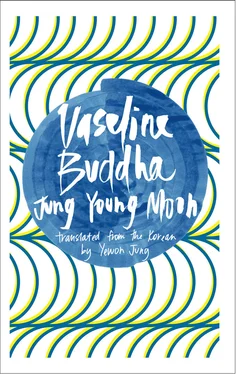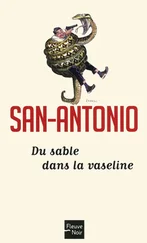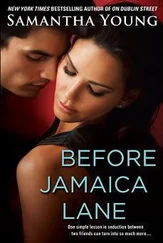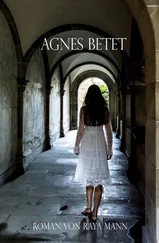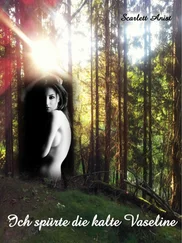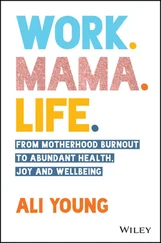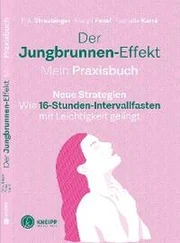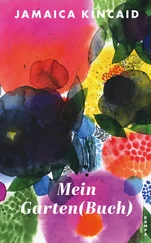But at that moment, I saw a crow that flew over to the roof where the workmen were, and through a process of association, I thought of van Gogh, who killed himself with a gun he claimed to have borrowed to shoot the crows that annoyed him, and suddenly wondered if he didn’t shoot himself, mistaking himself for a crow, and where exactly he killed himself with a gun. He could have done it while painting in his studio, while crows cawed loudly outside, or while standing absently before an easel with a brush in his hand, not being able to even think about painting because of the crows, but I fancied that he did it in a wheat or corn field while a flock of crows watched him. As he died, he could have thought, You win, but this isn’t your or anyone else’s victory, and if you must determine whose victory it is, it’s the victory of the corn field, where countless corn kernels are ripening. And as he slowly bled to death, the crows could have fled for a moment, startled by the gunfire, and then returned and spent the day eating grains, after which other painters could have come to the spot where van Gogh died, and painted the wheat or corn field where crows were flying around, cawing loudly, or sitting.
And I also thought about a gifted American cartoonist who mostly did sexually abnormal drawings, who said in a documentary film about himself that he always felt suicidal whether he was drawing or not, and whose life itself was more fascinating than the cartoons he drew, and his morbid younger brother who ended up killing himself, and about another younger brother of his who also drew cartoons when he was a child but became a drug addict, who in my opinion was even more gifted than his older brother who had become a famous cartoonist.
All through the meal, and after the meal, I was still hungry, not only because I ate little, but also because I ate very slowly, thinking about people who had committed suicide, which also pleased me. The breakfast, which I actually started eating somewhat late in the morning, came to an end at last at lunchtime. And picking up a yellow flower that was on the plate I had polished off, and picking out the petals and eating them one by one, I thought of crocuses, thinking that it looked like a crocus but was certainly not a crocus, and recalled the fact that crocuses that bloom in spring are called crocuses and ones that bloom in fall are called saffrons, and thought about how certain facts that were insignificant in reality pleased people at certain moments, and I was mostly pleased by such things.
And the fact that I was in a situation that was still obscure but no longer seemed so unpleasant, in which I had come to a strange little town to see a girl I didn’t know very well, whom I knew nearly nothing about and who knew nearly nothing about me, thinking of possibilities of one kind or another regarding her, then was turned away, made me feel so content and pleased that I had to smile, for it let me devour the yellow flower that made me think of crocuses, and think arbitrarily, after finishing the last of my coffee, and looking at the dregs, that my luck had run out.
And after a short while, when the workmen took a break even though they hadn’t done that much work, and lay sideways on the roof enjoying the warm rays of the sun, I too buried myself deep in my seat, and bathed in the peace of the little town that could be seen out the window. I heard the quiet murmur of people talking near the kitchen, but there was no one else at the restaurant. The town made you feel as if everything were passing slowly.
It looked as if the workmen had fallen asleep in the sun, and a very light breeze stirred up their hair and shirts and pants, taking them into pleasant dreams, and the breeze, which had come in through the open windows of the restaurant, was taking me into such a state as well. On the rooftop there was a weathercock in the shape of a rooster, which kept stirring very slightly and then stopping, for no other reason than that there was a very light, irregular breeze, and it seemed as if the rooster, too, were sleeping and dreaming, squirming lightly. The rooster, with a red comb on its head, was moving very minutely, and seemed to be quietly enjoying everything about the moment in its own way.
Anyway, there was a framed painting hanging by a window in the restaurant, which depicted a scene that was almost exactly the same as the scene out the window, seen from where I was. When I moved a little to the side, the painting looked the same as the scene, as if I were where the artist was when he was painting it. But there were no workmen in the painting, and there was a crow sitting on the top of the rooster-shaped weathercock, and when I moved my gaze from the painting to the scene outside, there was a crow sitting on the weathercock. The crow was at an angle slightly different from that of the crow in the painting, but it still looked like the crow in the painting. The scene seemed just perfect for looking at while passing time in leisure after breakfast.
I suddenly recalled that Napoleon kept “Mona Lisa” in his bedroom in the Tuileries Palace for some time. Perhaps he could feel, while looking at “Mona Lisa” before he fell asleep, that he really was an emperor who enjoyed all the privileges in the world, and felt that the greatest of all his privileges was having “Mona Lisa” in his bedroom and looking at it before falling asleep. Perhaps there was no painting like “Mona Lisa” to hang in someone’s bedroom. And perhaps Hitler tried to lay his hands on “The Art of Painting,” an enigmatic painting by Vermeer, for the same reason. Looking from the scene out the window to the painting depicting the scene, I felt that, in that moment at least, I was enjoying some kind of a privilege.
In that small town, there was a feeling of coziness found in all places where everything happens so slowly that time, too, seemed to pass slowly, and the feeling allowed me to stay lost in leisurely thoughts that rambled on because they were leisurely. I recalled my long-held belief that the roof, like the living room, should become a part of everyday life, and that people should spend more time on the roof, and also thought that the roof, indeed, was the most peaceful place in the house, that most quarrels take place in the living room or the kitchen, that people don’t go up to the roof to quarrel, and that the roof is a good place to calm yourself down when you’re angry. But soon it occurred to me that if the roof became a part of everyday life, a lot of quarrels could take place on the roof, which then could become even more dangerous than the inside of the house.
I came out of the hotel and went to the station that was at the hub of the town, and even when I was on my way to the station, I was thinking that I could go to the Lascaux Cave, which I knew was not too far from the station, and see the paintings there and think for a little while about how short the history of the present civilization was, and how it hasn’t been that long since humans came out of caves, or go a little further to the island of Mallorca, where Chopin wrote the “Raindrop Prelude,” and spend time in a room there listening to the sound of rain falling, or by a window where the sun shone through, feeling, to my heart’s content, an anxiety different from what Chopin felt, preferably of an unknown nature, or go to Turin, the city that Nietzsche, who planned from very young to write a little book of his own, and who in a way carried out the plan, said was the city he loved the most. Turin was also the city where Giorgio de Chirico, who saw countless riddles in the shadow of one human being, read Nietzsche, found “a strange, profound, mysterious, and infinitely lonely poem” in Nietzsche, painted “Melancholy in Turin” and “Spring in Turin,” and said that the city was the source of a series of his paintings, found melancholy. Perhaps in Turin, you could feel, as Chirico said, statues “come to life, talk, and even begin to walk, and come down from the pedestal and disappear.” Turin, where you could pass by countless statues depicting humans in squares and streets, as if passing by passersby, seemed to me like a city of statues, a city where the silence of statues ruled over noise. It seemed that in such a city, I might be able to dispel the gloom that always accompanied me, or at least feel differently about it. But it was certain that Turin was no longer the Turin that Nietzsche loved.
Читать дальше
